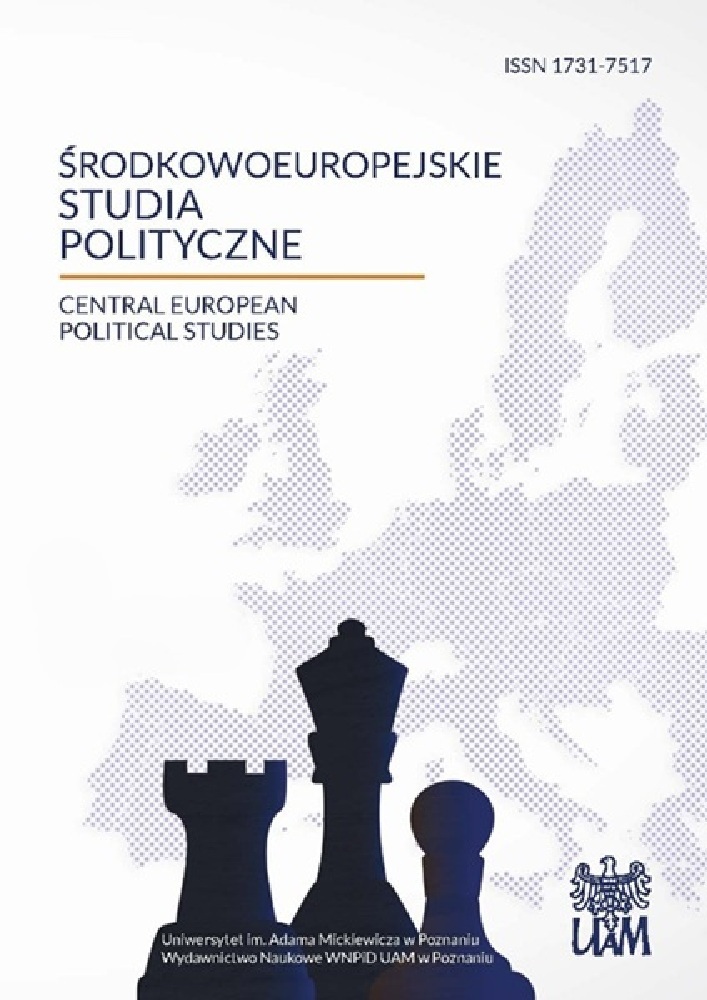Abstract
Celebrities are becoming a subject of growing interest for researchers and journalists. Studies on fame and popularity have become a separate research field with its own academic periodical. There are emerging books devoted solely to celebrities in the world of politics discussing the phenomenon of the increasing role of fame in modern politics, given the context of tabloidization, post-politics or the ‘entertainization’ of politics. Although the corpus of literature dealing with studies on political celebrities is increasing, this field continues to struggle with at least two fundamental issues. The first difficulty concerns the operational application of the concept of celebrity to describe the realm of politics. The second one concerns the limited number of empirical analyses of the phenomenon of political celebritization. The aim of this paper is to begin to fill this gap. The first part analyzes terminological difficulties concerning the concept of political celebrity. Next, the author suggests a new approach to this concept.References
Annusewicz O., Celebrytyzacja polityczna, „Studia Politologiczne” 2011, vol. 20, s. 268–278.
Boorstin D. J., The image: a guide to pseudo-events in America, Harper & Row, Publishers, New York 1964.
Currid-Halkett E., Starstruck: the business of celebrity, 1st ed., Faber and Faber, New York 2010.
Cwalina W., Marketing polityczny: perspektywa psychologiczna, Gdańskie Wydawnictwo Psychologiczne, Gdańsk 2005.
Garapich A., Wpatrzeni w gwiazdy, „Press” 2008, nr 155, s. 76–78.
Godzic W., Znani z tego, że są znani: celebryci w kulturze tabloidów, Wydawnictwa Akademickie i Profesjonalne: TVN, Warszawa 2007.
Goffman E., Człowiek w teatrze życia codziennego, Państwowy Instytut Wydawniczy, Warszawa 1981.
Maliszewski N., Jak zaprogramować wyborcę?, Centrum Doradztwa i Informacji „Difin”, Warszawa 2008.
Marshall P. D., Celebrity and power: fame in contemporary culture, University of Minnesota Press, Minneapolis Minn 1997.
Marwick A., d. boyd, To See and Be Seen: Celebrity Practice on Twitter, „Convergence: The International Journal of Research into New Media Technologies”, vol. 17, no. 2, s. 139–158, maj 2011.
Mills C. W., Elita władzy, Książka i Wiedza, Warszawa 1961.
Mrozowski M., Bohater naszych czasów, „Kultura Popularna” 2004, nr 3, s. 78–83.
Niczewski R., Celebryci w ataku: celebrity effect jako skuteczne narzędzie komunikacji marketingowej, Agora, Warszawa 2010.
Olczyk T., Przywódca czy celebrity? Strategie kreowania wizerunku w reklamie politycznej, w: Gra w przywództwo – jak zdobyć i utrzymać władzę, red. B. Szklarski, Ed. Collegium Civitas Press, Centrum Kreowania Liderów, 2008.
Olczyk T., Politrozrywka i popperswazja: reklama telewizyjna w polskich kampaniach wyborczych XXI wieku, Wydawnictwa Akademickie i Profesjonalne, Warszawa 2009.
Olczyk T., Widmo postpolityzmu, w: M. Białecki i in., Platforma Obywatelska. Diagnoza, Klub Badań nad Propagandą, Warszawa 2011.
Piontek D., Komunikowanie polityczne i kultura popularna: tabloidyzacja informacji o polityce, Wydawnictwo Naukowe WNPiD UAM, Poznań 2011.
Rein I. J., High visibility, 1st ed., Dodd, Mead, New York 1987.
Street J., Celebrity Politicians: Popular Culture and Political Representation, „British Journal of Politics & International Relations” 2004, nr 6, s. 435–452.
West D. M., Orman J. M., Celebrity Politics, 1st ed., Prentice Hall, 2002.
License
Copyright
© 2013, Uniwersytet im. Adama Mickiewicza w Poznaniu, Wydawnictwo Naukowe Instytutu Nauk Politycznych i Dziennikarstwa
OPEN ACCESS
